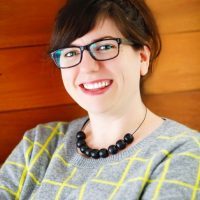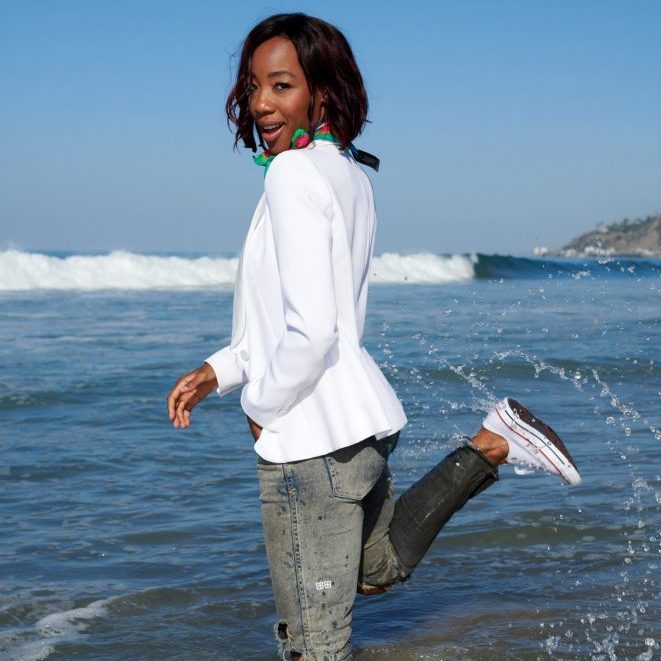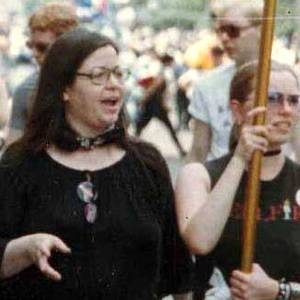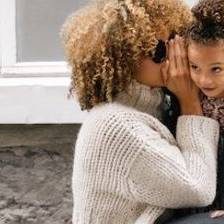
The LGBTQI community has been sharing stories for centuries, creating their histories, disrupting and reinventing conventional ideas about narrative, family and community.
Queerstories is a highly anticipated monthly storytelling event. It’s been selling out regularly for over a year and provides a platform for the LGBTQI community to share and connect. We chat to Maeve Marsden, mother of Queerstories.
Since its conception, Queerstories have gone from strength to strength. What is it about the concept that makes it so wildly popular?
The community loves listening to each other’s stories, but we like hearing unexpected stories. At Queerstories, I encourage storytellers to tell the stories they want to tell, rather than the ones LGBTQIA people are so often invited to tell in the media. In the mainstream media, we are always framed as ‘other’ so we are expected to tell coming out stories over and over again, to talk about the law and equal marriage, to answer invasive questions about how we make a family; trans people are asked to talk about their bodies in really personal ways, and are expected to tell over and over when and how ‘they knew’.
There’s so much more to us than these narratives. At Queerstories, I ask storytellers, what’s your hobby or passion, who is someone who had a significant impact on you, what are your politics, how do you do relationships, and what’s the funniest thing that’s happened to you? The stories are framed for a queer gaze. It’s not a platform for campaigning, inspirational speeches, or proving our worth. It’s about celebrating our community through narrative storytelling, and I think that’s refreshing for people. I am sure the popularity also has to do with what a fun, welcoming space it is – the monthly event has become a social occasion as much as a performance. And people tell me they like the fact I program both well-known and unknown performers, so you have comedians and writers alongside those without a public platform.
Being the curator of such a valuable platform must involve responsibility. How do you manage that?
I think about it a lot? I think about what kind of show I want to see, I care a lot about my programming, and I Listen to the audience, both online when they suggest storytellers or comment on my choices, then at the event, I listen to them respond to the performances. I’m a pretty bossy curator, I care about quality, and I make sure the people I program are going to be able to deliver. As long as people love coming, I’ll put it on, and if the audience stops being keen, I’ll either have to adapt or step aside for someone else’s project.
Any performers or moments you’ll never forget (for better or worse?)
Every performer has delivered something unforgettable, there isn’t a ‘dud’ among them. I mean that I have enjoyed everyone’s contribution. I’ve wept with laughter, and I’ve wept during the more sombre pieces too. Some memorable stories for me are those that genuinely play to a queer audience, don’t seek to explain all the community references, and share a queer sensibility.
Queerstories aside, you’re involved in many different projects and productions, with a heavy focus on feminism and LGBTQI representation. Do you feel like you’re making a difference?
I don’t want to make a difference; that’s not my goal. Once I said to a friend that I felt guilty for not putting my efforts into changing the world. She pointed out that the people working hard to create significant political change need to relax and be entertained too – and that she always knew that she could come to my shows after a hard day at work and enjoy herself. So I’ve kept that in mind – that I can provide relief and joy for people working hard to change the world.
I aim to entertain and engage people, and I don’t know any other way to do that than through a feminist and queer lens. Honestly, I wouldn’t know how to make a room full of straight cis-dudes laugh. It’d be a disaster. So I make the kind of work I want to see and try to convince others that they want to see it too. I am glad that since Queerstories has had Auslan interpreters every month, many people have contacted me asking for their details. So I hope the event encourages more people to hire Auslan interpreters in a small way!
Is anything extra special in store for the Mardi Gras’ 40th Anniversary Edition coming up?
I have split my Mardi Gras programming over two months – February 9 is at Riverside Theatres, Parramatta, with all storytellers from Western Sydney. I think we must disrupt the idea that queer community and culture is always in the centre of a city. There’s loads of unique queer art and culture in Western Sydney, and my lineup for Queerstories is incredibly good. Then on March 16, back at Giant Dwarf in Redfern, I am hosting a 78ers Queerstories with speakers who marched in the first Mardi Gras. I’ve also spent the summer working on a magazine for the ABC commemorating the 40th anniversary of Mardi Gras. The magazine is a gorgeous glossy thing and features some fantastic writers and subjects, such as Benjamin Law, David Marr, Julie McCrossin, Penny Wong, Pauline Pantsdown, Ellen van Neerven, Allan Clarke, Ian Roberts, Paul Mac, and so many more, all exploring these past four decades of activism and progress.
You won Best Spoken Word at Sydney Fringe 2016; that must have felt amazing. Do you have a specific trajectory in mind for Queerstories moving forward?
Queerstories is going interstate, with shows on sale in Melbourne (February 22) and Brisbane (March 17). I hope to grow the audience for the podcast, and I have signed on with a publisher to edit a book featuring 24 of the best stories from the past year. I’m also hoping to start filming some of the events. My goal is to keep producing Queerstories as long as audiences want it.



